
Keir Atwood Dullea is an American actor. He is best-known for his portrayal of astronaut David Bowman in the 1968 film 2001: A Space Odyssey and its 1984 sequel, 2010: The Year We Make Contact. His other film roles include David and Lisa (1962), Bunny Lake Is Missing (1965) and Black Christmas (1974). Dullea studied acting at the Neighborhood Playhouse School of the Theatre in New York City. He has also performed on stage in New York City and in regional theaters; he has said that, despite being more recognized for his film work, he prefers the stage.

Robert Louis Ridarelli, known by the stage name Bobby Rydell, was an American singer and actor who mainly performed rock and roll and traditional pop music. In the early 1960s, he was considered a teen idol. His most well-known songs include "Wildwood Days", "Wild One" and "Volare" ; in 1963 he appeared in the musical film Bye Bye Birdie.
The Fox is a novella by D. H. Lawrence which first appeared in The Dial in 1922. Set in Berkshire, England, during World War I, The Fox, like many of D. H. Lawrence's other major works, deals with the psychological relationships of three protagonists in a triangle of love and hatred. Without the help of any male laborers, Nellie March and Jill Banford struggle to maintain a marginal livelihood at the Bailey Farm. A fox has raged through the poultry, and although the women—particularly the more masculine Nellie—have tried to shoot the intruder, he seems always to elude traps or gunshot.
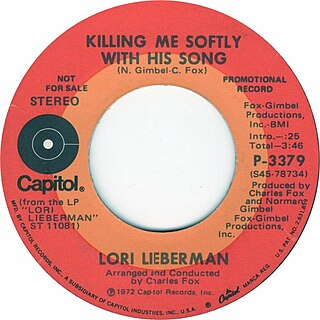
"Killing Me Softly with His Song" is a song composed by Charles Fox with lyrics by Norman Gimbel. The lyrics were written in collaboration with Lori Lieberman after she was inspired by a Don McLean performance in late 1971. Denied writing credit by Fox and Gimbel, Lieberman released her version of the song in 1972, but it did not chart. The song has been covered by many other artists.
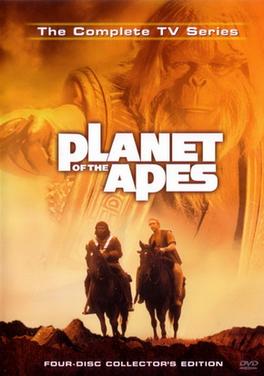
Planet of the Apes is a 1974 American science fiction television series that was broadcast on CBS. The series features Roddy McDowall, Ron Harper, James Naughton, and Mark Lenard. It is based on the 1968 film of the same name and its sequels, which were, in turn, based on the 1963 novel Planet of the Apes by Pierre Boulle.
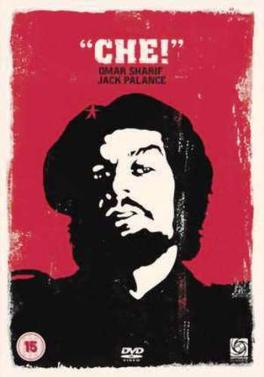
Che! is a 1969 American biographical film directed by Richard Fleischer and starring Omar Sharif as Marxist revolutionary Ernesto "Che" Guevara. It follows Guevara from when he first landed in Cuba in 1956 to his death in Bolivia in 1967, although the film does not portray the formative pre-Cuban revolution sections of Che's life as described in the autobiographical book The Motorcycle Diaries (1993).
Holiday is a British television programme, which aired mainly on BBC One, and sometimes on BBC Two. It is the longest running travel review series on UK television, showing every year from 1969 until its demise in 2007.
Norman Gimbel was an American lyricist and songwriter of popular songs and themes to television shows and films. He wrote the lyrics for songs including "Ready to Take a Chance Again" and "Canadian Sunset". He also co-wrote "Killing Me Softly With His Song". He wrote English-language lyrics for many international hits, including "Sway", "Summer Samba", "The Girl from Ipanema", "How Insensitive", "Drinking-Water", "Meditation", "I Will Wait for You" and "Watch What Happens". Of the movie themes he co-wrote, five were nominated for Academy Awards and/or Golden Globe Awards, including "It Goes Like It Goes", from the film Norma Rae, which won the Academy Award for Best Original Song for 1979. Gimbel was inducted into the Songwriters Hall of Fame in 1984.
Charles Ira Fox is an American composer for film and television. His compositions include the sunshine pop musical backgrounds which accompanied every episode of the 1970s ABC-TV show Love, American Style; the theme song for the late 1970s ABC series The Love Boat; and the dramatic theme music to ABC's Wide World of Sports and the original Monday Night Football; as well as the Grammy-winning hit song "Killing Me Softly with His Song", written in collaboration with Fox's longtime writing partner, Norman Gimbel.

Untamed is a 1955 American CinemaScope adventure western film directed by Henry King and starring Tyrone Power, Susan Hayward and Richard Egan, with Agnes Moorehead, Rita Moreno and Hope Emerson. It was made by Twentieth Century-Fox in DeLuxe Color. The screenplay was by William A. Bacher, Michael Blankfort, Frank Fenton and Talbot Jennings from a 1950 novel by Helga Moray. The music score was by Franz Waxman and the cinematography by Leo Tover.

Anne Heywood was a British film actress, who is best known for her Golden Globe-nominated performance in the 1967 film version of D.H. Lawrence's The Fox.
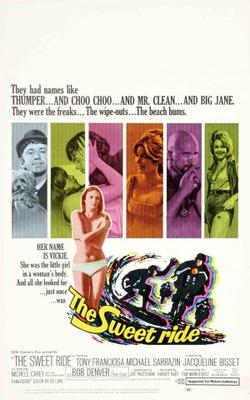
The Sweet Ride is a 1968 American drama film with a few surfer/biker exploitation film elements. It stars Tony Franciosa, Michael Sarrazin and Jacqueline Bisset in an early starring role. The film also features Bob Denver in the role of Choo-Choo, a Beatnik piano-playing draft dodger. Sarrazin and Bisset were nominated for the Golden Globe Award for Most Promising Newcomer, Male and Female respectively.
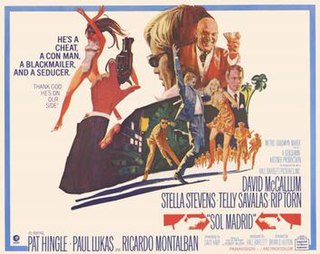
Sol Madrid is a 1968 film directed by Brian G. Hutton and filmed in Acapulco. Based on based on the 1965 novel Fruit of the Poppy by Robert Wilder, it was released in the UK as The Heroin Gang and in Australia as The Secret File of Sol Madrid. The MGM film starred David McCallum, Stella Stevens, Telly Savalas and Ricardo Montalbán with John Cassavetes being replaced by Rip Torn prior to filming. It was the final film of Paul Lukas.
Lewis John Carlino was an American screenwriter and director. His career spanned five decades and included such works as The Fox, The Brotherhood, The Mechanic, The Sailor Who Fell from Grace with the Sea, I Never Promised You a Rose Garden, Resurrection, and The Great Santini. Carlino was nominated for many awards, including the Academy Award for Best Adapted Screenplay.
Ellen Douglas was the pen name of Josephine Ayres Haxton, an American author. Her 1973 novel Apostles of Light was a National Book Award nominee.

There's a Whole Lalo Schifrin Goin' On is an album by Argentine composer, pianist and conductor Lalo Schifrin recorded in 1968 and released on the Dot label.
Happening '68 was a rock-and-roll variety show produced by Dick Clark Productions, which aired on the American Broadcasting Company (ABC) network. The show followed American Bandstand on Saturday afternoons. Happening '68 premiered on January 6, 1968 and was popular enough that ABC added a weekday spin-off. It's Happening ran on Mondays through Fridays from July 15, 1968 through October 25, 1968. When 1968 ended, Happening '68 became just Happening, which was canceled in October 1969.
Laura Anne Bossert is a violinist, violist, and pedagogue. She is a current faculty member at the Longy School of Music of Bard College and Wellesley College and, during the summer, the Castleman Quartet Program. She is co-director and founder of LyricaFest in Lincoln, Massachusetts.
This is the discography of Argentine-American jazz musician Lalo Schifrin.










